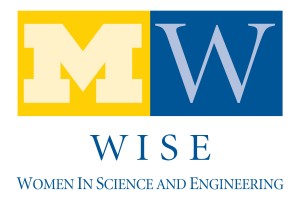Biotechnology Camp for High School Students (Focus on Nucleotide Hybridization)
Thank you for your interest in the program. We are currently full and additional application will go on the wait list.
This camp combines UNIX usage, wet-lab experiments, and thermodynamics calculation of nucleotide hybridization to teach current nucleotide biotechnology (qRT-PCR, microarray, next-generation sequencing). Wet-lab experiments will include PCR and gel-electrophoresis. As part of the camp, students will be encouraged to make a plan using new technology or improve technology, design it, and pitch the idea. No prior knowledge besides of DNA and RNA is necessary except for students’ motivation.
Please note that this camp is not residential.
DATE: July 17 – 21, 2017 (Mon – Fri) TIME: 9 am – 4:30 pm
LOCATION: Undergraduate Science Building, University of Michigan, Ann Arbor, MI 48109
INTENDED AUDIENCE: Academically motivated current (2016-17) high school and exceptional 8th grade students interested in computers, math, science, and medicine.
FEE*: $525 (with premium membership**: $445.00)
*After reviewing your essay in the registration form, we will inform you regarding acceptance within 5 buisness days. If accepted, you will be sent payment options. Limited partial scholarships are available for financially difficult students such as those who are in free or reduced lunch program. Proof of income are required.
**You may want to consider membership.
Bring a laptop and lunch (morning and afternoon snacks provided).
Registration
Students with camp certificates will be qualified to become miRcore volunteers. High school volunteer program runs throughout the school year, determining a disease of focus of the year, collaborating with similar level students to research the disease, and leading a school club GIDAS (pronounce: guide-us; Genes in Diseases and Symptoms). Out-of-state students can join the volunteer meetings through an online meeting platform.
Sponsors:
Goals
- Expose high school students to career opportunities in biomedicine through hands-on experience in computational genomics and prepare them for the emerging era of medical genomics, when all doctors must be well-acquainted with genetic discoveries, technologies, and applications.
- Identify potential GIDAS (Genes In Diseases And Symptoms) club leaders at their schools.
Specific Aims
1. Become familiar with Unix commands and run programs using command lines.
2. Understand nucleotide hybridization and related thermodynamics.
3. Design primers.
4. Practice basic lab technology (PCR and Gel).
5. Understand the progress of the biotechnology and needs for next technology.
Overall daily activities (subject to change)
| 9:00 am – 10:00 am | test and review, games |
| 10:00 am – 11:00 am | lectures covering specific aims, snacks |
| 11:00 am – noon | hands-on activities |
| noon – 1:00 pm | lunch |
| 1:00 pm – 2:00 pm | group activity, games |
| 2:00 pm – 3:00 pm | research to solve a daily project question, snacks |
| 3:00 pm – 3:30 pm | student presentations/writing, games |
| 3:30 pm – 4:30 pm | career discussion with a professional |
Tentative Career focus
university scientists (academic career)
business
law (ethics, patents, policy, etc)
pharmaceutics/biotechnology (careers in industry)
Fridays
Parents are invited to students’ presentations
Each group will pitch a biotechnology busines plan based on the week’s research
Recognition of the best pitch
Refund Policy
The $100 administrative fee will not be refunded once the camp application is accepted.
If a student withdraws, the camp fee paid minus the administrative fee will be refunded if we are notified by May 19, 2017.
If a student withdraws between May 20 and June 26, 2017, we will refund 50 percent of the camp fee paid.
No refund will be given after June 27, 2017.


